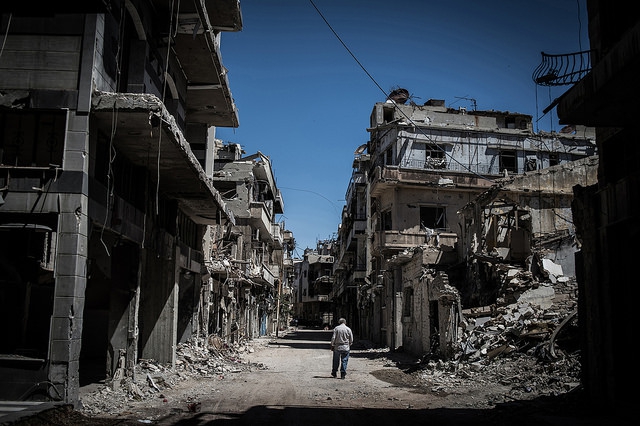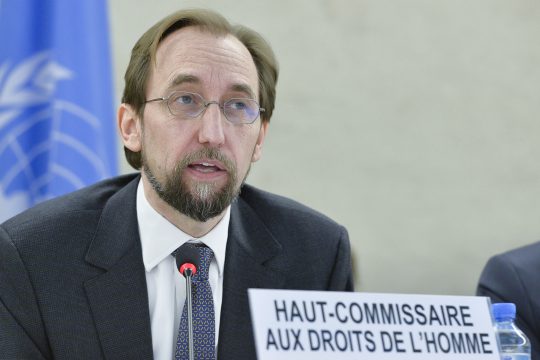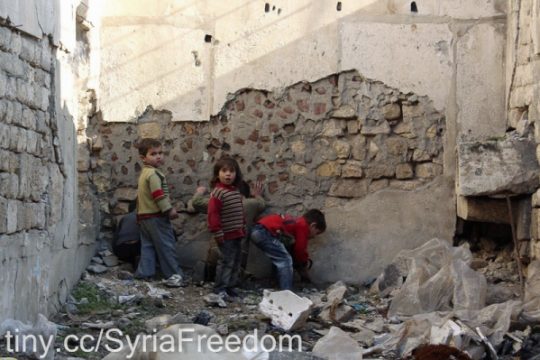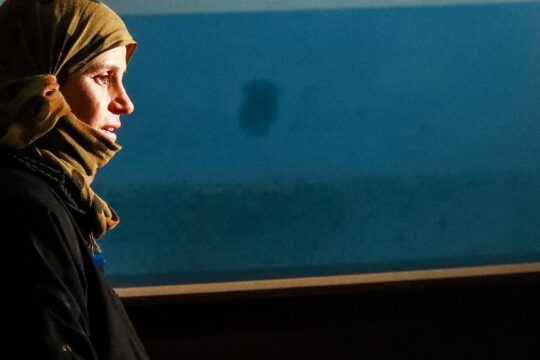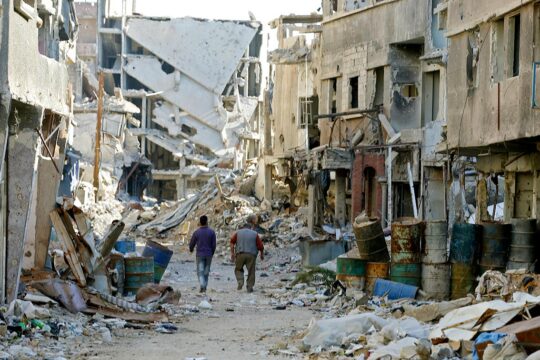According to Google, it takes 35 hours to drive by car the 3,397.4 kilometres from Berlin to Aleppo. Metaphorically, the distance is infinitely longer between these two symbolic cities. Twenty-seven years ago, the fall of the Berlin Wall marked the end of the Cold War and gave new impetus to international law. The term transitional justice was about to be invented to reflect the energy of this new wave of democratization that was developing in Europe, Latin America and Africa. Today, from the ruins of tortured Aleppo, we need to rethink transitional justice.
In the 1990s, the optimism of the immediate post-Cold War period fired a determined vision of moral progress through liberal democracy, in a world dominated by the American superpower. Despite wars in the former Yugoslavia and the genocide of Tutsis in Rwanda, this vision of the future was the DNA of transitional justice. And it is this vision that is now breached. Forgotten is the idea of transition leading people gradually to a new democratic dawn. The dividends of peace have long flown away and arms sales, along with the number of refugees, are rocketing.
For the last five years, Syria has been bathed in fire and blood, forcing 22 million of its citizens to flee, including nearly 5 million who have become refugees. They are refugees that Europe, with the notable exceptions of Germany and Sweden, does not want and against which it is building new walls.
At the same time the world has watched the suffering of the Syrian people, day after day, bombardment after bombardment, allowed to continue in total impunity to the advantage of the Bashar al-Assad regime and its Russian ally. In Yemen, both sides are violating international humanitarian law. Saudi aircraft have bombed hospitals and schools several times, provoking only timid protests from Western allies. In the Philippines, President Rodrigo Duterte boasts of having killed suspected delinquents himself, to set an example for the police. In South Sudan, the UN warns of genocide but seems powerless to stop the bloodshed.
The whole system for protection of human rights and international humanitarian law set up after the Second World War is now under threat across the world. In the face of this, the International Criminal Court (ICC) seems powerless, whilst Europe and the United States are battening down the hatches in the name of national security and the “war on terror”. In this context, the very terms of transitional justice need to be revisited. Apart from notable exceptions like Tunisia, they no longer mean the peaceful passage from oppression to democracy. They mean above all that one day it will be necessary to rebuild on the ashes of our present. And the price will be heavy.



